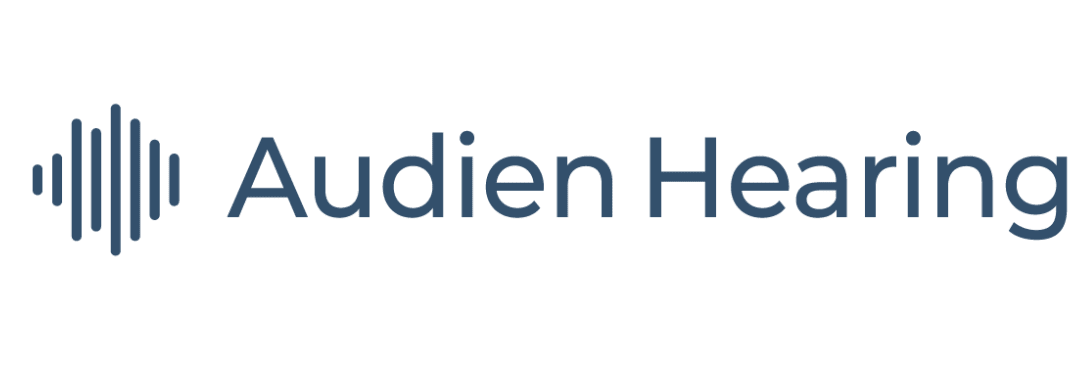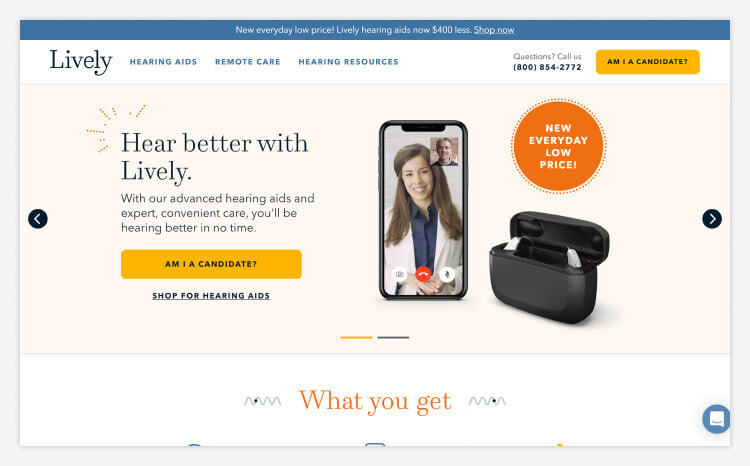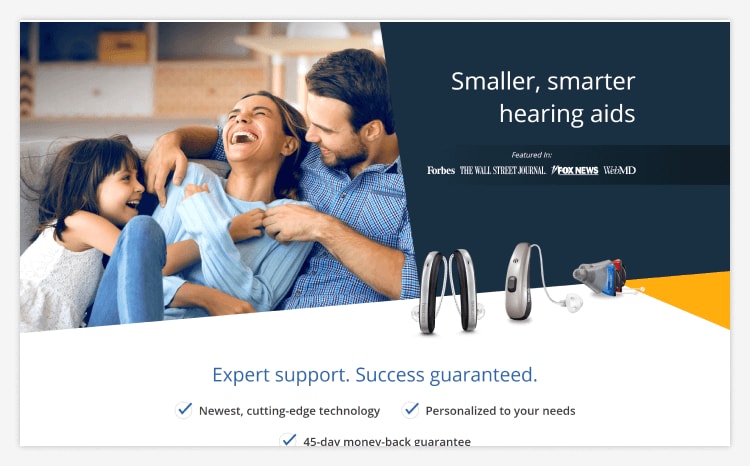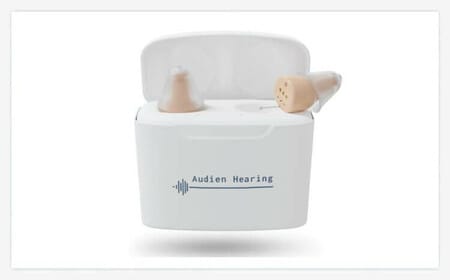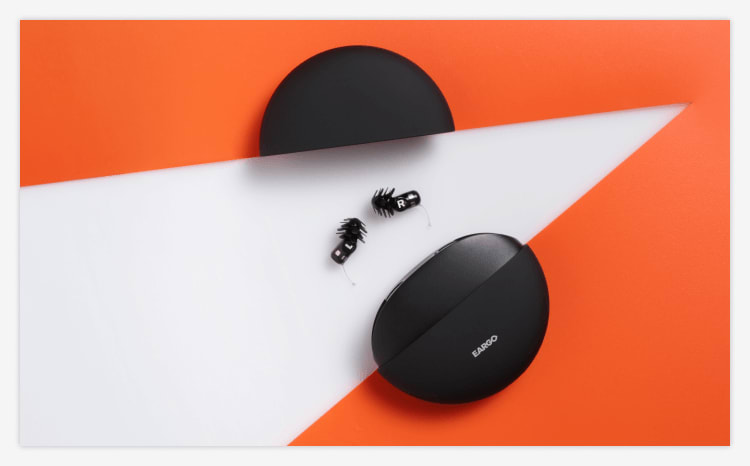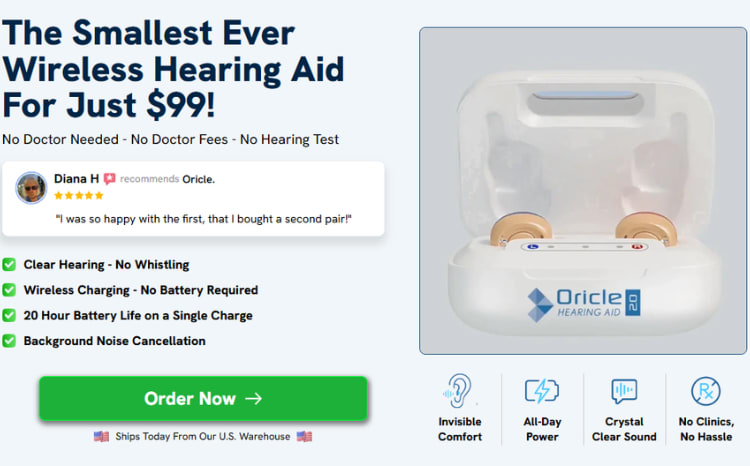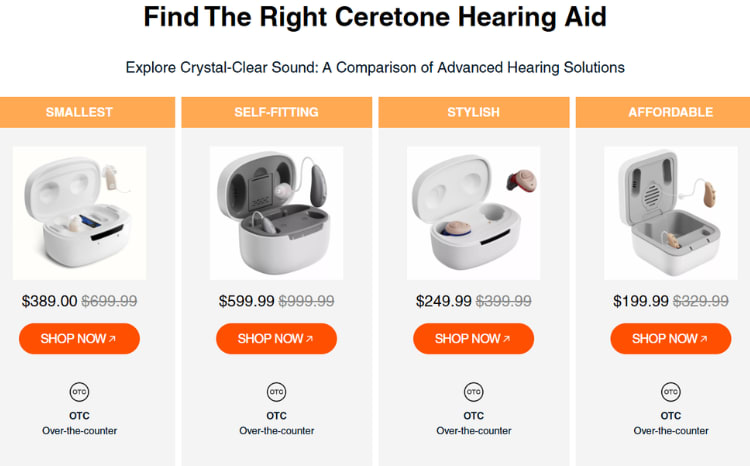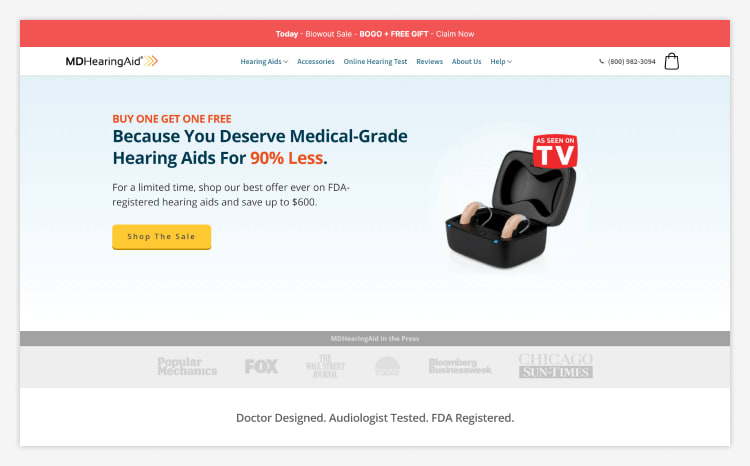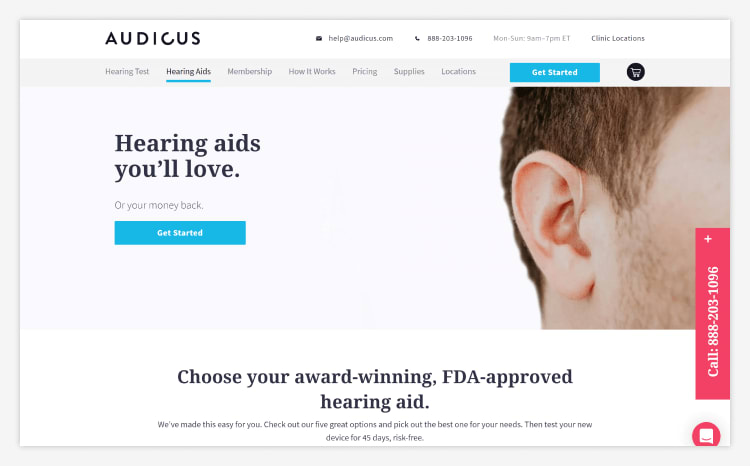How does a hearing aid work?
Hearing aids are small electronic devices that are worn in or behind the ear by people with hearing loss. Their job is to amplify specific sounds helping their wearer hear and communicate with others better. These devices can improve hearing in both quiet and noisy environments, depending on the user’s specific needs.
While there is a large range of designs available, almost all hearing aids function on the same basic principle. The hearing aid’s microphone picks up sound waves, converts them to electrical signals, and sends them to an amplifier. The amplifier then processes, boosts, and modifies the power of these signals and passes them on to a tiny receiver in the ear.
Did you know? Only about one out of five people who would benefit from a hearing aid actually use one.
What are the different types of hearing aids available?
Depending on the characteristics of your hearing loss, your ear, nose, and throat doctor (ENT) or audiology professional will recommend the right type of hearing aid for your needs.
Behind-the-ear (BTE)
A BTE hearing aid has two parts: the main part hooks over your ear and sits behind your auricle. A thin, clear tube connects it to a plastic earmold that fits inside the outer ear. The earpiece itself can be custom molded, but many people now use small pre-made ear tips that fit very comfortably within the ear canal.
Receiver-in-canal (RIC, also RITE)
The receiver-in-canal (RIC) and receiver-in-the-ear (RITE) styles are similar to a behind-the-ear hearing aid with the speaker or receiver that sits in the ear canal. A tiny wire, rather than tubing, connects the piece behind the ear to the speaker or receiver. This style of hearing aid usually has a less visible behind-the-ear portion and may be available with a rechargeable battery.
Completely-in-the-canal or invisible-in-the-canal(CIC/IIC)
A completely-in-the-canal(CIC) or invisible-in-the-canal (IIC) aid sits deeper inside the ear canal, making it nearly or entirely invisible. They are made to fit the size and shape of a person’s ear canal and are the most discreet kind of hearing aid. Because of their small size, these devices may be difficult for a person to adjust and remove. Their compact form also means less space for additional features such as volume control or extra microphones.
In-the-canal (ITC)/In-the-ear (ITE)
An in the ear/canal (ITE/ITC) aid sits completely within your outer ear (ITE) or just inside your ear canal (ITC). As these styles are larger than CIC/ICC hearing aids, they can include more practical features and are available with directional microphones (two microphones for better hearing in noise). ITE hearing aids usually include larger batteries than CIC/IIC models and can be easier to handle.
What you must consider before buying a hearing aid
Audiologist vs. direct-to-consumer
Hearing aids can be prescribed, programmed, and fitted by a licensed audiologist or ordered directly from the manufacturers. Direct-to-consumer (DTC) brands are generally less expensive, but you will sacrifice the benefits a local expert provides, including personalized device programming, in-depth hearing test results, and in-person customer service.
Hearing test
Before getting a prescription for hearing aids from a licensed audiologist, the first thing they will require is a thorough hearing test and evaluation. They will also explain the differences between hearing aid styles and recommend which type might fit your lifestyle best. Hearing tests are easy and painless and covered by most health insurance companies. Many online hearing aid retailers also include a free hearing test in their offer, so be sure to shop around. While you can order direct-to-consumer hearing aids without a hearing test, it is better to have as much information on your hearing loss as possible to inform your purchase decision.
Pricing
Unlike a hearing test, hearing aids are generally not covered by health insurance companies, leaving you to cover the cost. Hearing aid prices can vary significantly from retailer to retailer and range from just a few hundred dollars to well over $2000. Professional fees, remote controls, hearing aid accessories, and other hearing aid options may cost extra. Talk to your audiologist about your needs and expectations, and make sure that you understand which features are important to you and fit your budget. Almost all online hearing aid retailers offer comfortable payment plans to fit your financial needs.
Trial period
Hearing aids can be a major investment, so make sure to purchase devices that come with a risk-free trial of at least 30 days, as well as a manufacturer’s warranty. Retailers will usually credit the cost of the trial toward the final price of the hearing aid. Also, ask how much of the purchase price is refundable if you return the hearing aid during the trial period.
Warranties/repairs and adjustments
Make sure your hearing aid includes a warranty that covers parts and labor for a specified period. Some hearing aid dispensers may include office visits or professional services such as cleanings and adjustments in the warranty.
Are additional accessories available?
Modern hearing aids, especially higher-end models, can come with a wide array of additional accessories such as remote controls, replaceable batteries, custom ear tips, cleaning tools, and many more. While some of these accessories are simply nice to have, others can make life with your new hearing aid considerably more comfortable.
Extra features
Directional microphones
Directional microphones help to improve the pickup of sounds and are most effective in noisy environments, allowing their wearer to focus on sounds from a specific direction without the distraction of background noise. Adaptive directional microphones can automatically focus on speech and sound coming from different directions giving their wearer the freedom to move between environments with varying noise levels comfortably.
Noise reduction/cancellation
All modern hearing aids have noise reduction features available. The degree of noise reduction will depend on the model of your hearing aid, with more expensive devices offering more advanced reduction. Some hearing aids also offer wind noise reduction.
Rechargeable batteries
Higher-end hearing aids have rechargeable batteries, making maintenance easier for you by eliminating the need to regularly change the battery. Keep in mind that these batteries are not usually replaceable, so when they reach the end of their lifespan (usually within 3-5 years), the hearing aids will need to be replaced.
Smartphone capabilities
Some modern hearing aids can wirelessly connect with your smartphone devices so you can stream calls and audio from your phone to your hearing aids. They also connect to hearing aid apps, allowing you to adjust your sound settings discreetly.
Takeaway
Hearing aids can be expensive, and while they are not usually covered by insurance or Medicare, companies do offer ways to spread out the costs. If you are willing to sacrifice some of the fancier features available in newer models, there are basic devices that are more affordable, yet still effective. We’ve broken down the top choices to help you find the best hearing aid for your needs.
Check out our in-depth reviews for more details.
Premium hearing aids include the most features for a seamless listening experience. These are best for individuals who live an active lifestyle and are in noisy environments often. This level of technology provides the most dynamic and automatic support in all types of listening situations.
Can you wear just 1 hearing aid? If you have normal hearing in one ear, and mild hearing loss in the other, you're probably fine to just wear one hearing aid—just remember to get regular hearing tests to make sure your "good ear" is still hearing well
Simply put, no — cheap hearing aids are not nearly as good as hearing aids you buy from an experienced hearing healthcare professional who is also adept at fitting and servicing these devices.
For those experiencing hearing loss, many often wonder if their hearing gets worse if they don't wear a hearing aid. If you have hearing loss and have been advised to wear a hearing aid, the rate at which your hearing deteriorates will not be affected whether you wear the hearing aid or not.
Natural Intelligence does not provide medical advice, diagnosis, or treatment. If you think you may have a medical emergency, call your doctor or your local emergency number immediately.
.20210825110904.jpg)



